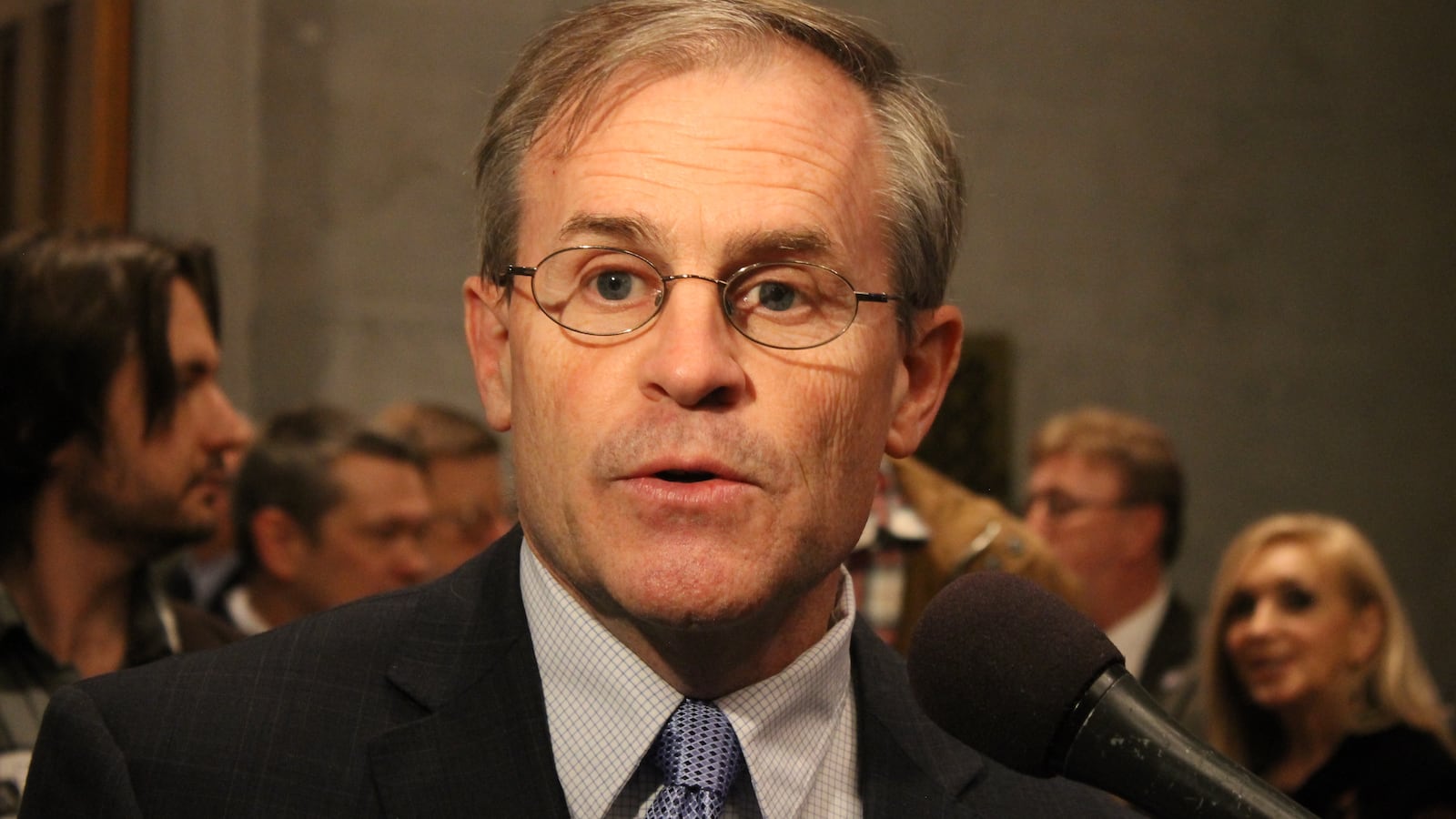When voucher legislation began systematically moving through committees this year in Tennessee’s House of Representatives, the momentum seemed unstoppable. A bill that historically became mired in House committees appeared to be hurtling toward the governor’s desk, where it was certain to become law.
This week, however, the momentum faltered under an avalanche of proposed amendments — and falling snowflakes that kept some pro-voucher legislators at home. As a result, the bill’s sponsor, Rep. Bill Dunn, opted to delay Monday’s scheduled vote until later this week, likely on Thursday.
Speaking on the House floor, Dunn announced that he wants to revise the bill so it would only apply to the state’s four largest counties: Shelby, Davidson, Knox and Hamilton. The Knoxville Republican said he also is reviewing other amendments in search of a more comprehensive bill that also could pass the House.
Known as the Choice and Opportunity Scholarship Act, the bill would provide parents the option of using public funding for private school tuition for students who are in the state’s lowest-performing schools. The legislation has the backing of Gov. Bill Haslam. (Read Chalkbeat’s explainer on the voucher bill.)
The amendments, filed mostly by Democrats, include several designed to build accountability into the voucher program by, among other things, requiring private schools to refund voucher tuition money if the majority of its participants don’t show sustained improvement in academic achievement. Others would terminate private school participation for the same reason or halt the program altogether.
“There were 22 [amendments],” Dunn said following the decision to hold the bill. “… Two of them were not timely filed. I think your amendments may have merit, but I want to look closer at them.”
One new amendment came from Dunn to restrict the voucher program to Tennessee’s four largest counties — likely in response to a handful of school boards in smaller towns that recently have passed resolutions urging their representatives to vote against the bill. Public school leaders argue that vouchers would divert enrollment and state funding from traditional public schools to private or parochial schools.
But even if the program’s footprint is restricted to urban areas, school leaders in the mostly rural state worry that a voucher law would open the door to expansion later to other students.
The voucher vote is expected to be close, and three lawmakers considered “yes” votes were absent on Monday evening, as snow fell and concern increased about potentially hazardous road conditions.

Even though the House agreed to delay the bill, action on the House floor offered a foretaste of the battle ahead. Lawmakers opposing vouchers objected to postponing the bill, with 34 lawmakers voting unsuccessfully against the sponsor’s normally routine motion for a delay.
House Minority Leader Craig Fitzhugh, the Nashville Democrat who has offered a number of amendments to Dunn’s bill, said he ultimately respects Dunn’s decision to hold off.
“When you get prepared to play a game, you’ve got your team ready to play and you take a day off — it could affect things one way or another,” Fitzhugh said. “We never know with the weather who might have problems getting in. When you have a real significant vote, you have to account for everyone.”
For Thursday’s vote, no snow is in the forecast.

